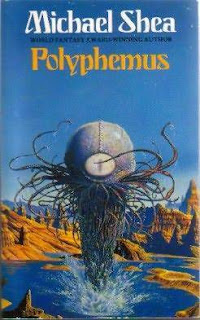Night Hearing

Michael Cisco, "Night Hearing" in Where the Silent Ones Watch , ed. James Chambers (Hippocampus Press: 2024). This is the short story that got me to finally tackle William Hope Hodgson's The Night Land , which I read for the first time last month. If you haven't read The Night Land , Cisco's "Night Hearing" will excite your imagination and likely set you craving for more一it certainly did that for me. Or, if you've already made the journey in search of Naani/Mirdath and are looking for something that shows tremendous respect to the Hodgson while adding more to sink your teeth into, "Night Hearing" isn't to be missed. Cisco imagines the Night Land before the sun has completely died. The monsters are on their ascendancy, and people await the call to the Redoubt. It is wonderful to discover (or re-discover more about) the Monstruwacan, The Master Word, The House of Silence, The Towers, the ab-humans, and the Young Watchers. If you need an...











